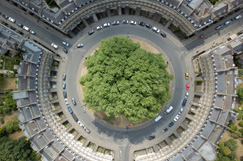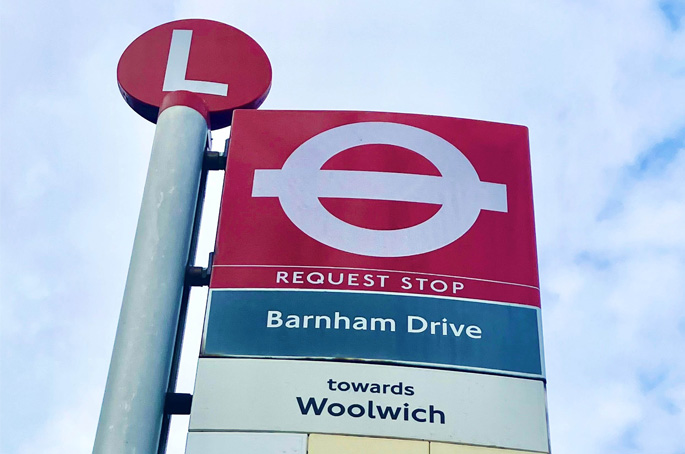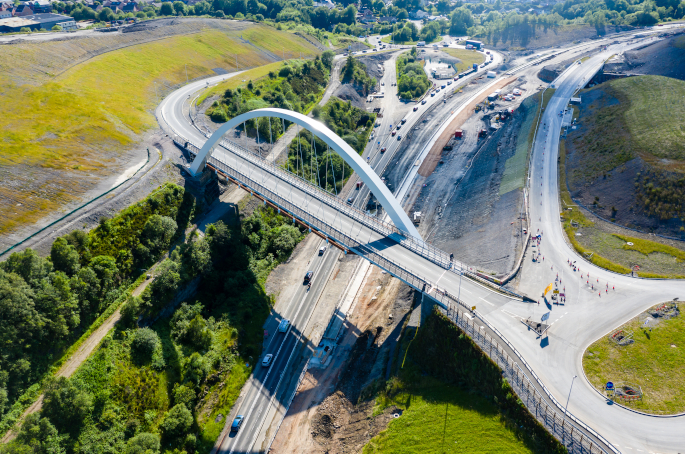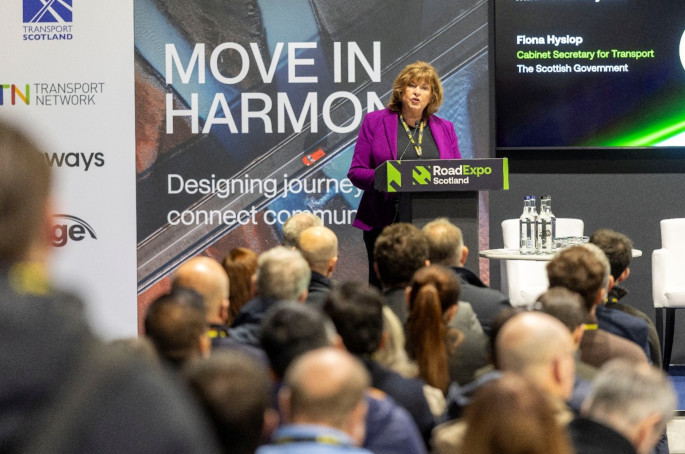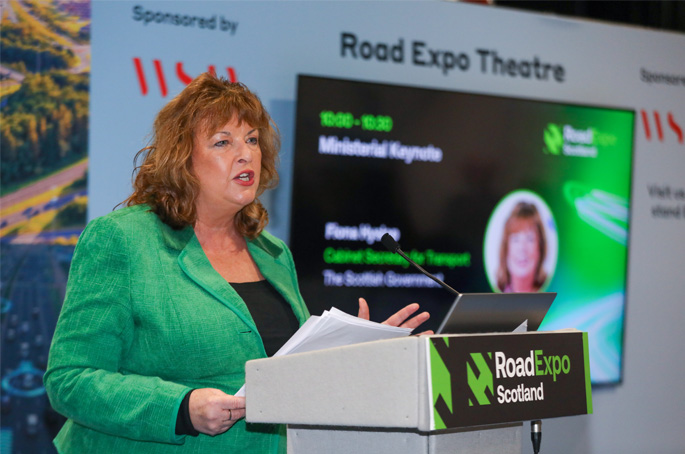Martin Lamb, director at Maple Consulting Ltd, and Helen Viner, director at Enodamus Ltd - both part of the International Transport Experts Network - discuss the theory behind the circular economy and how it is being applied to new research in the highways sector.
The ‘circular economy' concept represents the goal of keeping resources in use so that products and systems can be sustained indefinitely within the resources available to us on Earth – the ‘one planet' solution.
Mimicking natural systems, in a circular model, materials are almost endlessly incorporated into new cycles, purposed in different ways but retaining their value as resources.
Adopting a circular approach requires designs that make use of materials already in use, that avoid additional extraction and, at the end of life, facilitate the re-use of materials in future cycles.
Why is this important? At the risk of stating the obvious, the way we obtain, use and dispose of resources is not sustainable - whether the resources in question are water, crops, energy or construction materials. Pressure on the consumption of resources can be expected to increase as the global population and standards of living increase. We must find a better approach.
What does the circular economy mean for road administrations?
Defining this has been an early task in the CERCOM (Circular Economy in Road Construction and Maintenance) project commissioned as part of CEDR's Transnational Research call of 2020, and starting in September 2021.
This two-year project, funded by seven national road administrations, and undertaken by partners from Ireland, the UK, the Netherlands and Denmark, aims to understand the technical, operational and procurement opportunities and barriers to moving towards more circular practices.
For road administrations, the initial focus of attention is on the construction and maintenance of highway infrastructure, and this is the focus of the CERCOM project. This is an important point when you consider the consumption of resources in the road sector – 277 million tonnes of asphalt were produced in Europe in 2020 (footnote 1). While this was a reduction of around 20 million tonnes compared to previous years, this is presumably due to the impacts of the Coronavirus pandemic.
In recent years, sustainability improvements in the road sector have focused on increased asphalt recycling, incorporation of recycled asphalt in new products and lower temperature asphalt mixes. All are valuable, but the circular economy goes much further, entailing a fundamental re-evaluation of how we can efficiently use, reuse, repair and repurpose valuable resources before recycling is considered.
The overarching objective is not necessarily to minimise the flow of materials during each lifecycle but to generate cyclical systems where materials maintain their status as resources through multiple lifecycles.
Reflecting this, the familiar ‘3Rs' concept (reduce, reuse, recycle) has been extended to the ‘9Rs' (refuse, reduce, reuse, repair, refurbish, remanufacture, repurpose, recycle, recover energy).
Potting and Hanemaaijer (footnote 2) alternatively propose six Rs within four useful categories (as shown in figure 1 below), each of which represents an opportunity for new approaches:
- Narrowing the loop – covering rethinking (R1) and reducing (R2)
- Substituting – partially covering reducing (R2)
- Slowing the loop – through re-use (R3) and repair and re-use of product parts (R4)
- Closing the loop – covering recycling (R5)
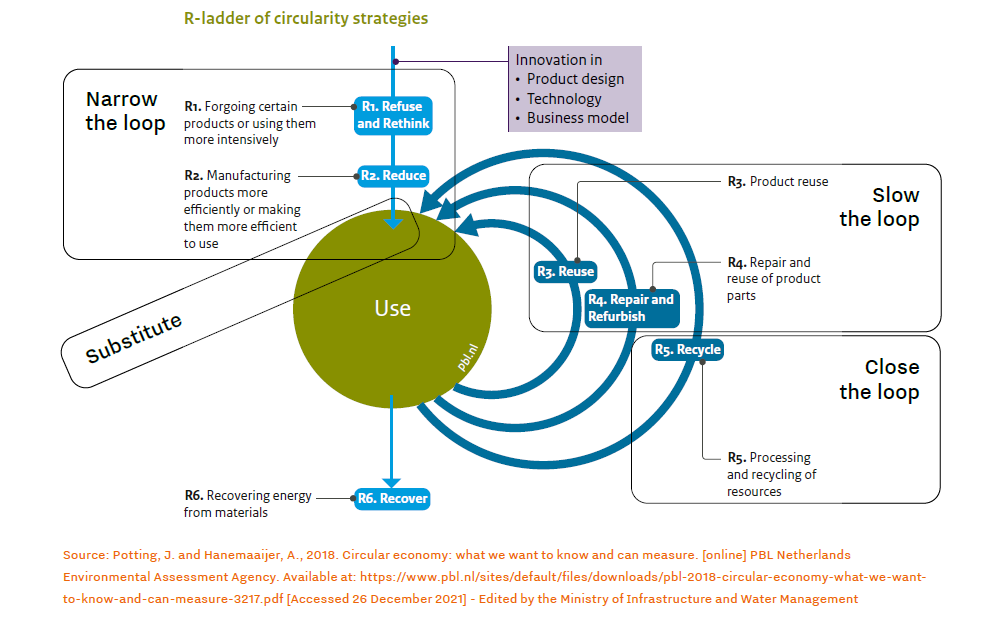
Figure 1: R-ladder of circularity strategies
The Ellen McArthur foundation has defined the Circular Economy as 'one that is restorative by design, and which keeps products, components and materials at their highest utility and value, at all times'.
This has provided the starting point for the project and can remain an overarching objective, but for day-to-day operations, there needs to be a framework in which it can operate. Attempts to address a scope that is too broad are unlikely to be successful since the data to support measurement of performance or assessment of the circularity of different maintenance options is unlikely to be available.
Furthermore, national road administrations (NRAs) will differ in the extent to which they have already implemented circularity principles and in their rate of development. For these reasons, the following operational goals are proposed, which can form a flexible approach that can be extended and developed over time.
Circular Economy and Resource Efficiency means, by design:
- Minimising the consumption of natural resources
- Designing out waste and keeping resources in use and at their highest level of utility
- Optimising the value obtained within each lifecycle
- Improving environmental performance and contributing to societal development
Circular Economy and Resource Efficiency means, by design:
- Minimising the consumption of natural resources
- Designing out waste and keeping resources in use and at their highest level of utility
- Optimising the value obtained within each lifecycle
- Improving environmental performance and contributing to societal development
To translate this to an operational level for highway construction and maintenance, a process framework has been created, (see figure 2 below). It shows how material requirements can be assessed and options considered to meet the functional and structural requirements set.
The available resources are evaluated against a risk framework with associated metrics. Development of this risk framework is one of the current project activities.
Finally, overall performance is measured, and improvement opportunities are identified.
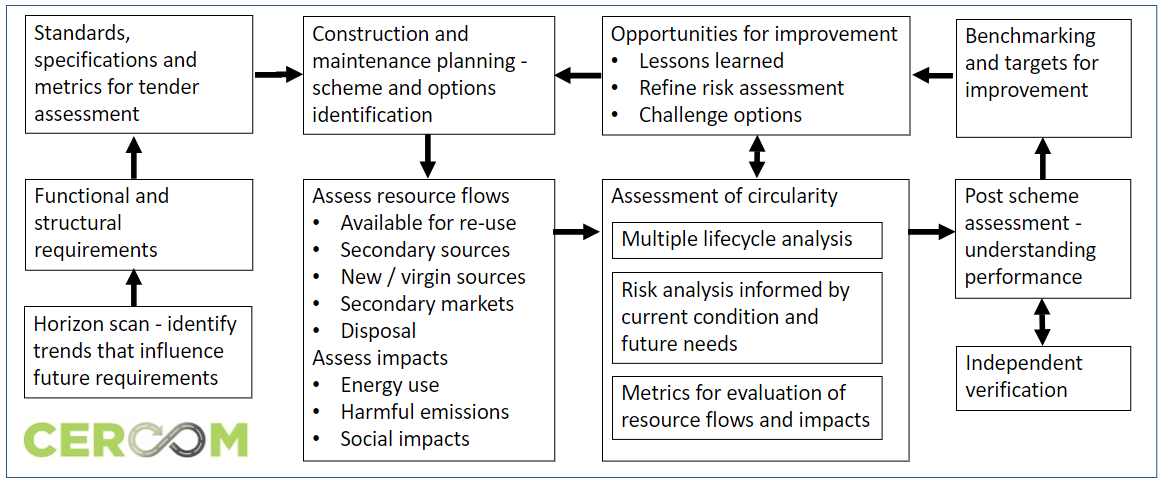
Figure 2 CERCOM Framework for Incorporating Circular Economy in Highway Construction and Maintenance
While transportation is only one of many sectors and industries looking for more sustainable approaches, finding solutions in this case is particularly important since an effective transportation system is critical to developed and developing economies, enabling necessary growth and reducing inequity.
The results of success or lack of progress in developing more circular approaches will be felt worldwide.
As the CERCOM project progresses, we will develop an innovative risk assessment methodology to help assess the use of multi-lifecycle materials. This is particularly important given that the shift toward a circular economy implies the reuse of materials and no material loss through the system.
We will test our assumptions and methodologies through a selection of case studies, and provide recommendations and a range of training materials targeting different roles within road administrations.
The results will help road administrations and their supply chains move towards circularity. To find out more, get involved, provide feedback and suggestions and play a part in finding solutions, sign up to receive project updates and access to resources to support change.
Footnotes:
1. https://eapa.org/asphalt-in-figures/
2. Source: Potting, J. and Hanemaaijer, A., 2018. Circular economy: what we want to know and can measure. [online] PBL Netherlands Environmental Assessment Agency. Available at: https://www.pbl.nl/sites/default/files/downloads/pbl-2018-circular-economy-what-we-wantto-know-and-can-measure-3217.pdf [Accessed 26 December 2021] - Edited by the Dutch Ministry of Infrastructure and Water Management

